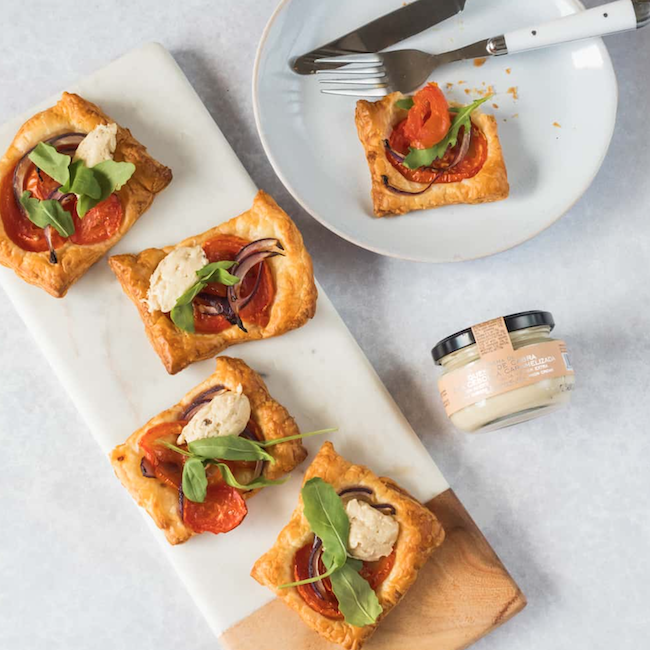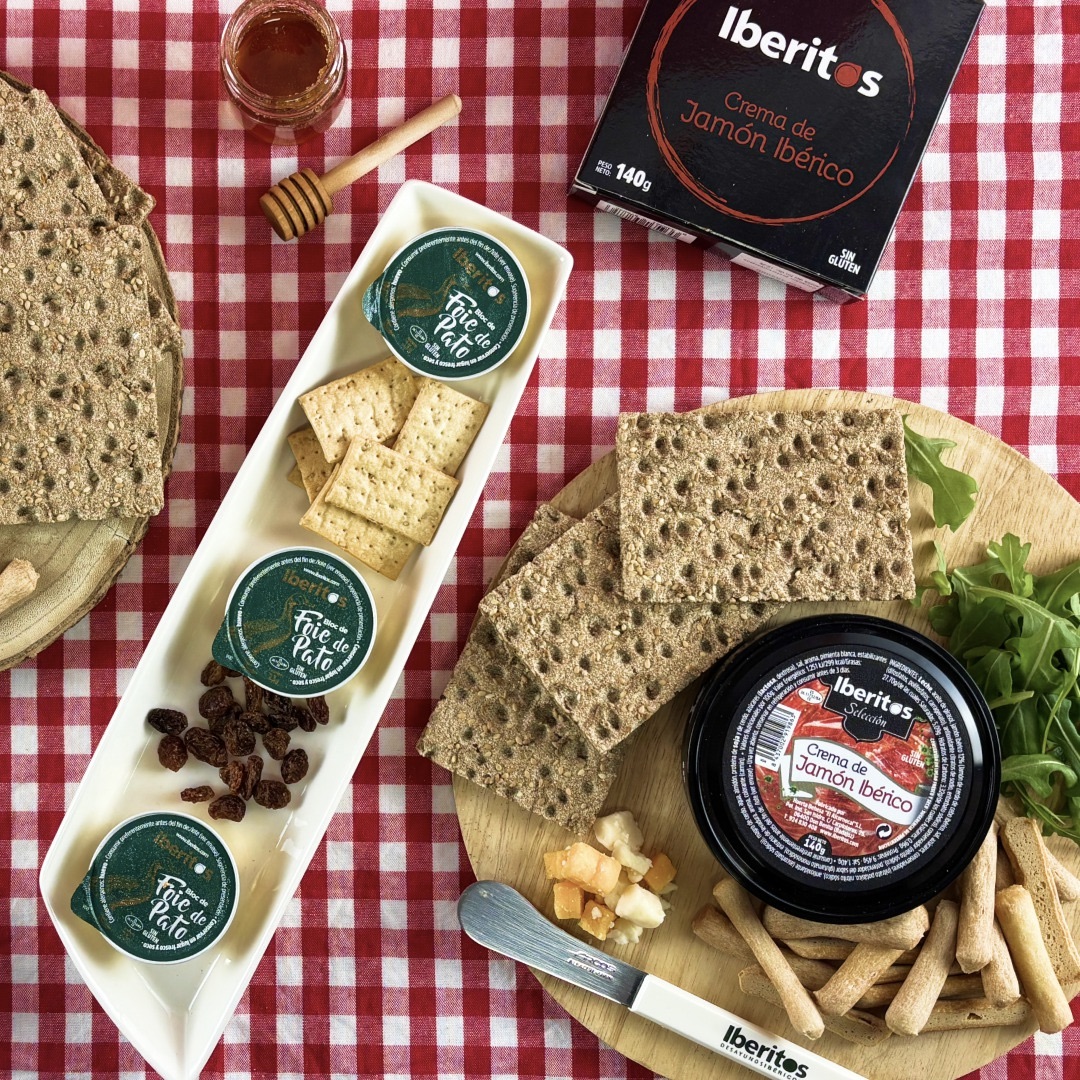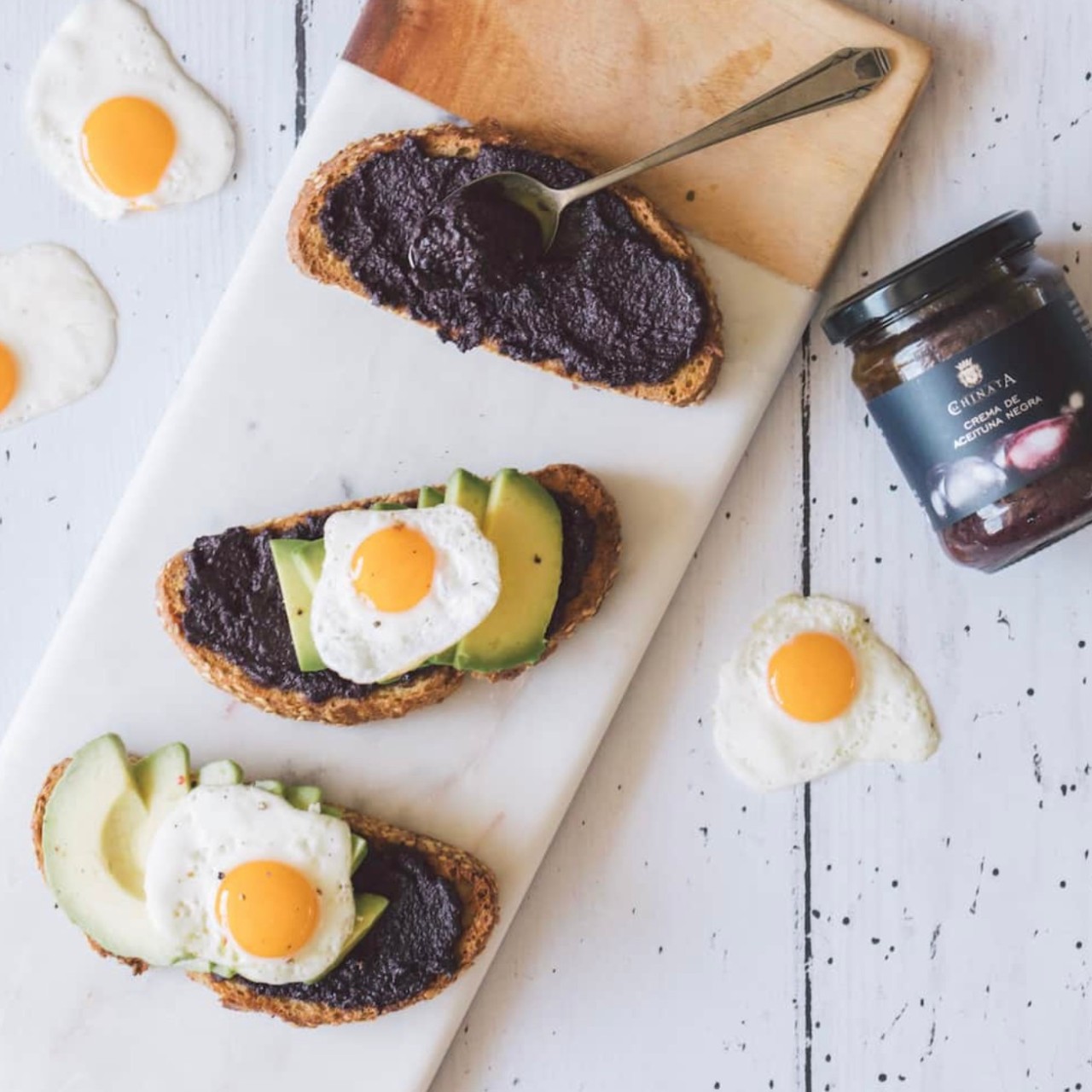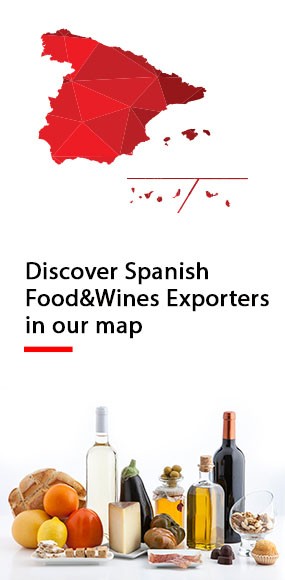.png.transform/rendition-xs/image_image%20(1).png)
Spreadable Pleasures!
These companies are packaging the tradition of eating bread with a wide variety of spreads with a gourmet twist: want to try a jamón ibérico paté?
One of the most insightful ways to gauge a country’s essence is by observing how it has breakfast and noting what makes the morning meal unique compared to other places. In Spain, churros undoubtedly stand out, as do slices of toast with olive oil and tomato, but there are many other breakfast traditions. One of the most distinctive (and peculiar) involves spreading various meat-based preparations on bread, a hallmark of the southern Iberian Peninsula.
In Andalusia, it’s common to see people in bars starting their day with toast topped with manteca colorá (reddish pork lard cooked with pieces of meat, usually pork, and seasoned with pimentón—which gives it its characteristic color—and other spices like oregano and bay leaf). Another traditional favorite is zurrapa (shredded pork loin fried in lard with salt and sometimes additional spices). These authentic recipes are best enjoyed with a slice of bread bearing a protected geographical indication, such as the mollete from Antequera, a soft, round bread typical of this Málaga town, with a slightly crispy crust.

In Extremadura, cachuela reigns supreme. This is a pork liver pâté fried in lard with garlic, pimentón, and other seasonings like cumin, black pepper, or bay leaf. It may sounds like a breakfast for champions but locals enjoy it on a daily basis.
In other regions, such as the Mediterranean—and particularly the Balearic Islands—sobrasada takes center stage. Meanwhile, in the north of Spain, pork is replaced by different fish species, and the morning meal often shifts to brunch, featuring delicacies like pastel de cabracho (rockfish pâté created by the great Juan Mari Arzak) or bonito (Thunnus alalunga or albacore tuna).

Traditional Recipes Packaged in Extremadura
This gastronomic richness couldn’t be lost, which is why, in 2007, Iberitos was founded in Santa Amalia (Badajoz, Extremadura). The company pioneered the production of 25-gram single-serving pâtés and spreads. They produce not only cachuela, zurrapa, and manteca colorá, but also Iberian ham cream, pimentón-spiced pork loin cream, venison pâté with boletus mushrooms, Jerez-flavored salchichón pâté, and nearly a hundred other varieties. These include spreads made with tomato, tuna, mussels, and cheeses from various Spanish regions, such as Torta del Casar. Simply opening one of these pâtés is enough to complete a cheese or charcuterie board or to create tapas by spreading them on slices of bread: as simple and delicious as that.
“The company comes from a family rooted in Extremadura with a tradition in charcuterie that decide to develop a byproduct based on two concepts: products made with Iberian raw materials and the adaptation of these products for individual consumption”, says Rafael Román, CEO of Iberitos. Their products are made using artisanal methods and the finest ingredients, whether from Extremadura’s fertile lands and dehesa grasslands or other regions of Spain for their seafood-based versions. “Approximately 20% is dedicated to export. Our main markets are Europe and America, and we are currently launching in the Asian continent, where single-portion products are primarily exported”, notes Román.

Another company from Extremadura that has entered the spread market is La Chinata, based in Plasencia (Cáceres). Paloma Oliva, along with her brother Fernando, represents the third generation leading this family business, which began by producing extra virgin olive oil. Fifteen years ago, they decided to expand into a line of creams and pâtés. “We enjoy promoting Extremaduran products like Torta del Casar and morcilla patatera (a pork and potato sausage), but we also offer plant-based spreads made with crushed olives mixed with other ingredients,” explains Oliva.
“While these spreads can be eaten for breakfast, they are also perfect for appetizers and can be incorporated into recipes, such as artichoke cream or bell pepper cream for pizza, or baked chicken crusted with black olive cream and cava,” says Oliva. Their path to international markets has led them to export 15% of their production to countries in the Americas, such as Mexico, Guatemala, and Honduras, where meat-based spreads are well-received. In Europe, their products are sold in Germany, Italy, and Greece. La Chinata even has its own stores in countries as Guatemala, Norway, Bulgaria or Czech Republic.
Perfect for the Festive Season
As Oliva explains, although these pâtés often originate from recipes traditionally intended for breakfast, they can serve as the foundation for canapés with a distinctly Spanish flavor—making them the perfect starting point for celebrations.
Imagine, for instance, Torta del Casar pâté topped with caramelized onions on a regañá. Or sobrasada with a small touch of honey to create an irresistible bite. Cabracho cake pairs well with a hint of mayonnaise and a bit of lettuce… simple (yet highly effective) solutions to transform a table into a true feast.
A Growing Trend with More Companies
The gourmet cream market, which emphasizes high-quality, locally sourced ingredients, has also seen the emergence of other companies, such as Señorío de Fuentes from Seville. They package single-serving portions of tomato with garlic, cured ham pâté, or pork meat pâté with Pedro Ximénez wine. Another noteworthy brand is Icarben from Málaga, which produces zurrapa, manteca colorá, sobrasada, and pepper pâté, all in single-serving formats.
These products make it possible to enjoy an authentic Spanish-style breakfast anywhere. Just open and spread…

